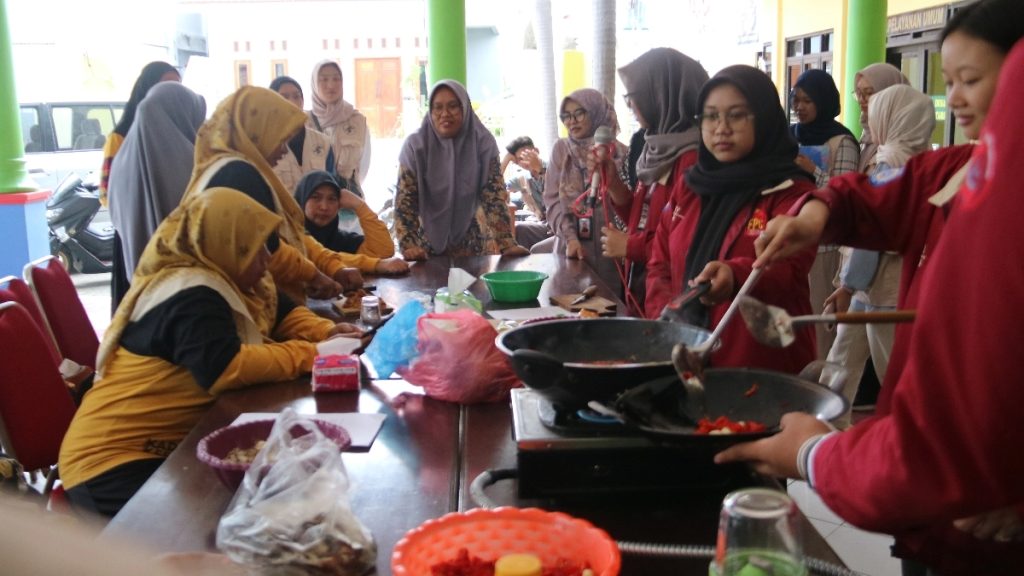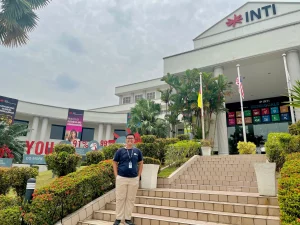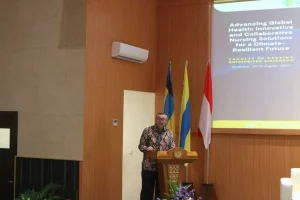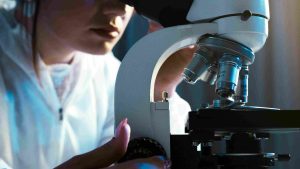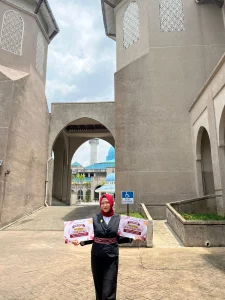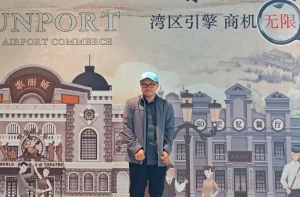UNAIR NEWS – As part of its commitment to the Tri Dharma Perguruan Tinggi (three pillars of higher education), the Student Executive Board (BEM) of Universitas Airlangga’s Faculty of Fisheries and Marine Sciences (FPK) conducted a community service initiative. Held on Saturday, June 12, 2025, in Penatarsewu Village, Sidoarjo, the event was titled BERKAH (Empowering Smoked Fish into Variety of Exceptional Products).
The program is part of a broader community outreach initiative known as SALMON (Social and Learning Activity with Morality for Nation), conducted in collaboration with the Fisheries Processing Club (FPC). During the event, FPK students delivered educational sessions on fisheries product diversification and waste utilization, followed by a hands-on workshop on transforming smoked fish into sambal.
The event began with a presentation on product diversification strategies, focusing specifically on processing smoked fish into sambal to enhance its economic value. Participants from Penatarsewu were then guided through a practical session on making the sambal themselves.
Enthusiastic community engagement
Daffa Aufafitra Pambudi, Head of Economics for SALMON 2025, shared that the Penatarsewu residents responded enthusiastically to the initiative. Community members actively engaged in both the educational and practical portions of the event.
“The community showed strong enthusiasm for the smoked fish sambal training, especially during the discussions on fisheries product diversification and the sambal-making workshop,” said Pambudi. “Many residents asked insightful questions and openly discussed their experiences and challenges with fish processing.”
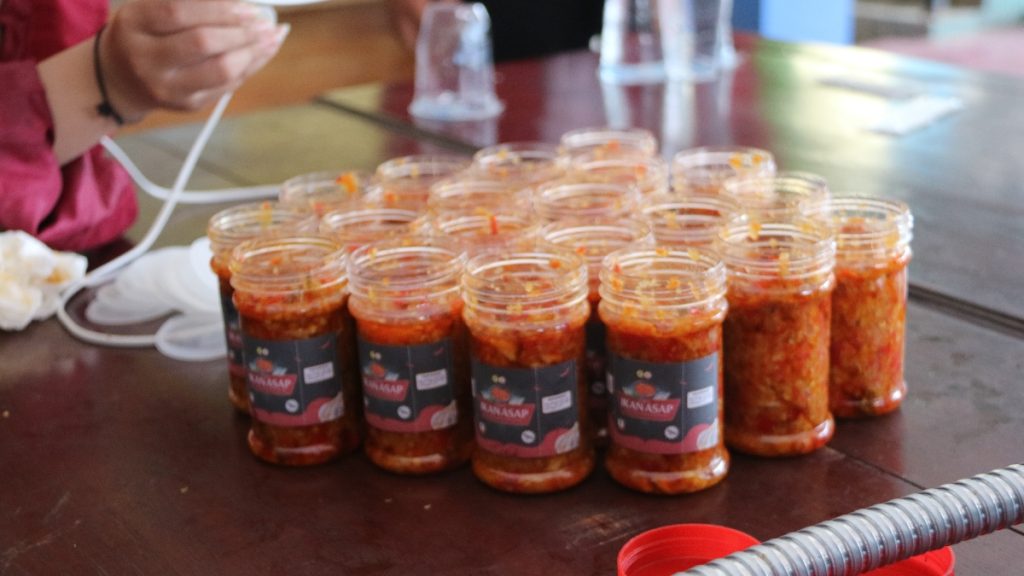
Program benefits and impact
According to Pambudi, the program offered several benefits to the community, particularly in introducing the potential of utilizing fish waste that previously held little to no economic value. The initiative not only has the potential to improve household incomes in Penatarsewu but also promotes more efficient use of fisheries resources.
“Overall, this program has successfully introduced villagers to innovative ways of creating value-added fish products. It’s a step toward boosting local economies and could help generate employment by creating sustainable livelihood opportunities,” he explained.
Pambudi also expressed hope that the skills and knowledge shared during the training will be implemented long term, encouraging continuous innovation in fish product development and economic growth in the village.
“We hope this initiative leads to ongoing practices, not just a one-time activity,” he said. “Ideally, the smoked fish sambal products can eventually be marketed widely with strong branding, becoming a signature product of the region.”
Author: Rifki Sunarsis Ari Adi
Editor: Khefti Al Mawalia


